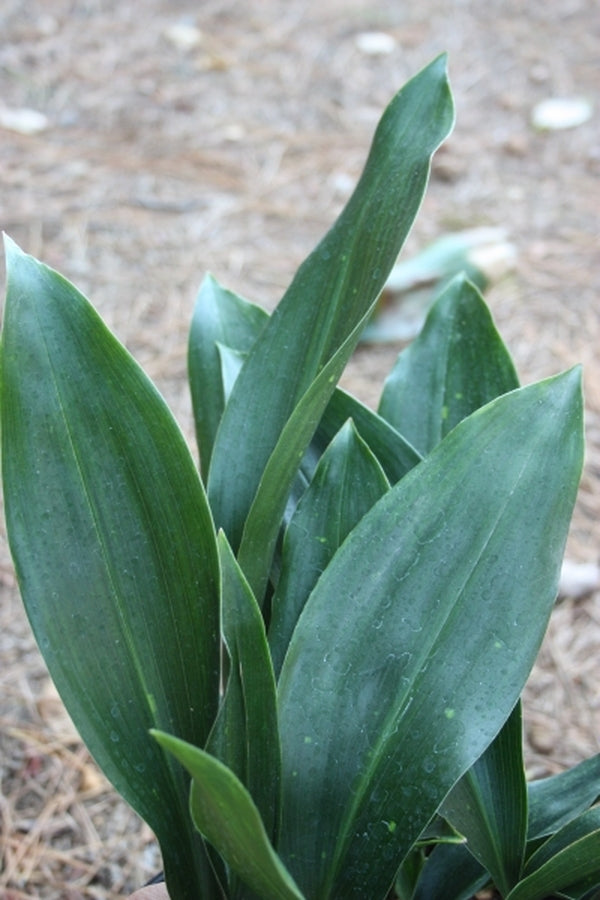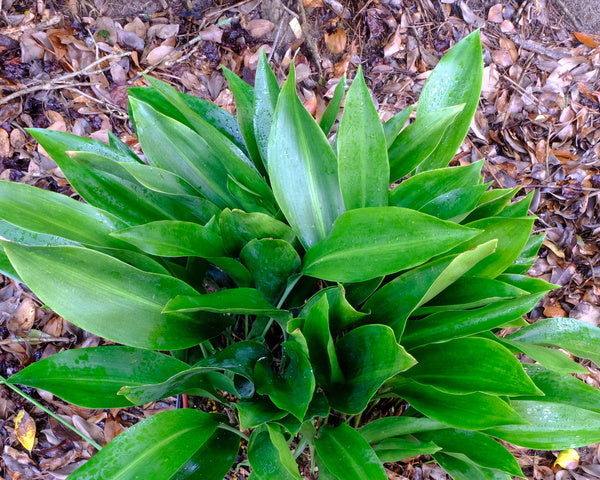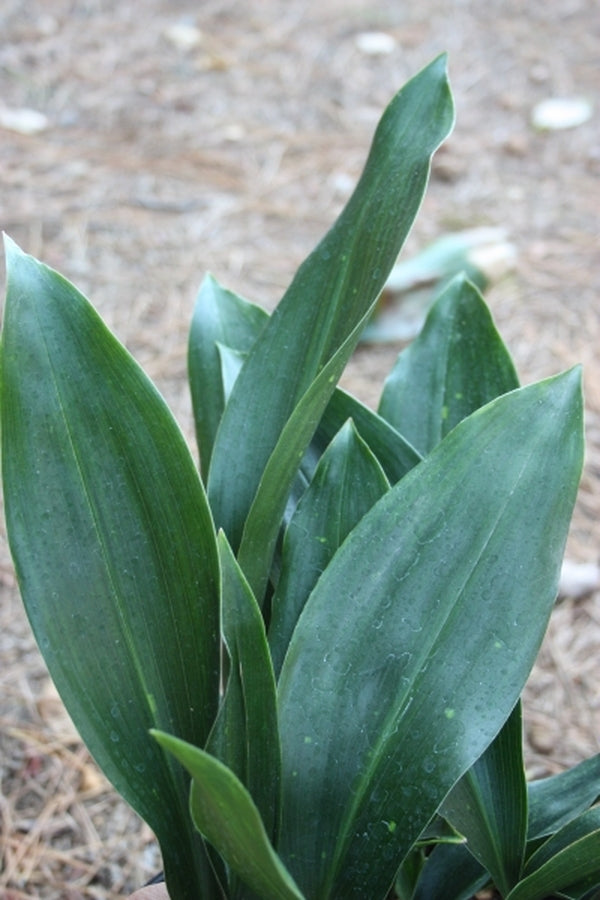Aspidistra molendinacea 'Skin Tight Green Jeans'
Skin Tight Green Jeans Cast Iron Plant
This plant is not currently for sale. This is an archive page preserved for informational use.
Shop Available AspidistraItem #: 3998
Zones: 7b to 10b
Dormancy: Evergreen
Height: 20" tall
Origin: China
Pot Size: 3.5" pot (24 fl. oz/0.7 L)
We are pleased to once again offer the rare Chinese aspidistra, Aspidistra molendinacea, first published in 2002 from Guangxi, China. This is one of the slowest growing cast iron plant species in our collection, so supplies are always limited. Our clone of Aspidistra molendinacea has been fine in our Zone 7b garden since 2008, where it produces very thick 20" long, rigidly upright leaves that include a 6" basal stem. The shiny green leaves are faintly spotted yellow.
Maintenance:
Aspidistra are very low maintenance perennials. Each leaf can last up to 3 years, but after the second year, it will begin to show signs of aging and leaf degradation. For that reason, we recommend removing all old foliage regularly to retain the attractiveness of the clump. It's always disappointing to see large patches of cast iron plants in public spaces where it hasn't been properly maintained.
Growing Conditions:
Cast iron plants grow well in both moist and dry soils as long as the drainage is good. Aspidistra must be grown in shade, since their foliage will scorch if they are subjected to sun. In the jungles where they grow, they are often seen in very deep shade.
In containers, they make superb house plants. The common name cast iron plant speaks to their durability in less than ideal conditions. Regular moisture, including increased humidity when they are grown as house plants, keeps them from getting stressed and becoming susceptible to spider mites.
Garden Value:
The bold texture and upright form of cast iron plants is invaluable in the garden, since there few other plants with this form and texture. Many have amazing flowers, produced at the base of the foliage, often in the winter months. While these flowers are rarely noticed in the garden, they can be quite attractive in the home.


-
Other Attributes
Genus: Aspidistra
Flower Color: Purple/Lavender , Violet
Leaf Color: Green
Bloom Time: Winter
Container Role: Thrillers
Garden Themes: Living Wall
Other: Deer Resistant Plants , Drought Tolerant Plants , Dry Shade Plants , Pollinator Plants , Medicinal Plants , Plant Delights Introductions , Plants from China , Rabbit Resistant Plants , Salt Tolerant Seaside Plants , Tropical Looking Plants , Plant Delights Creations and Discoveries , House Plants



